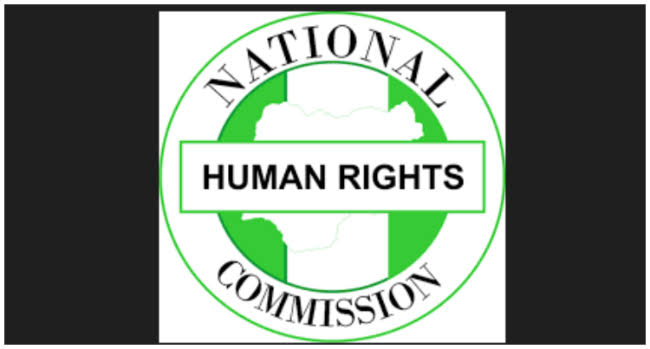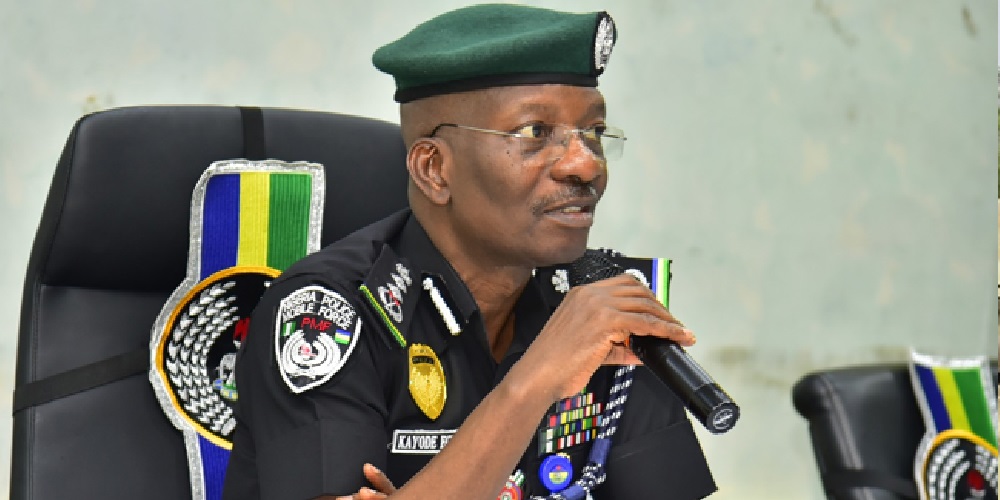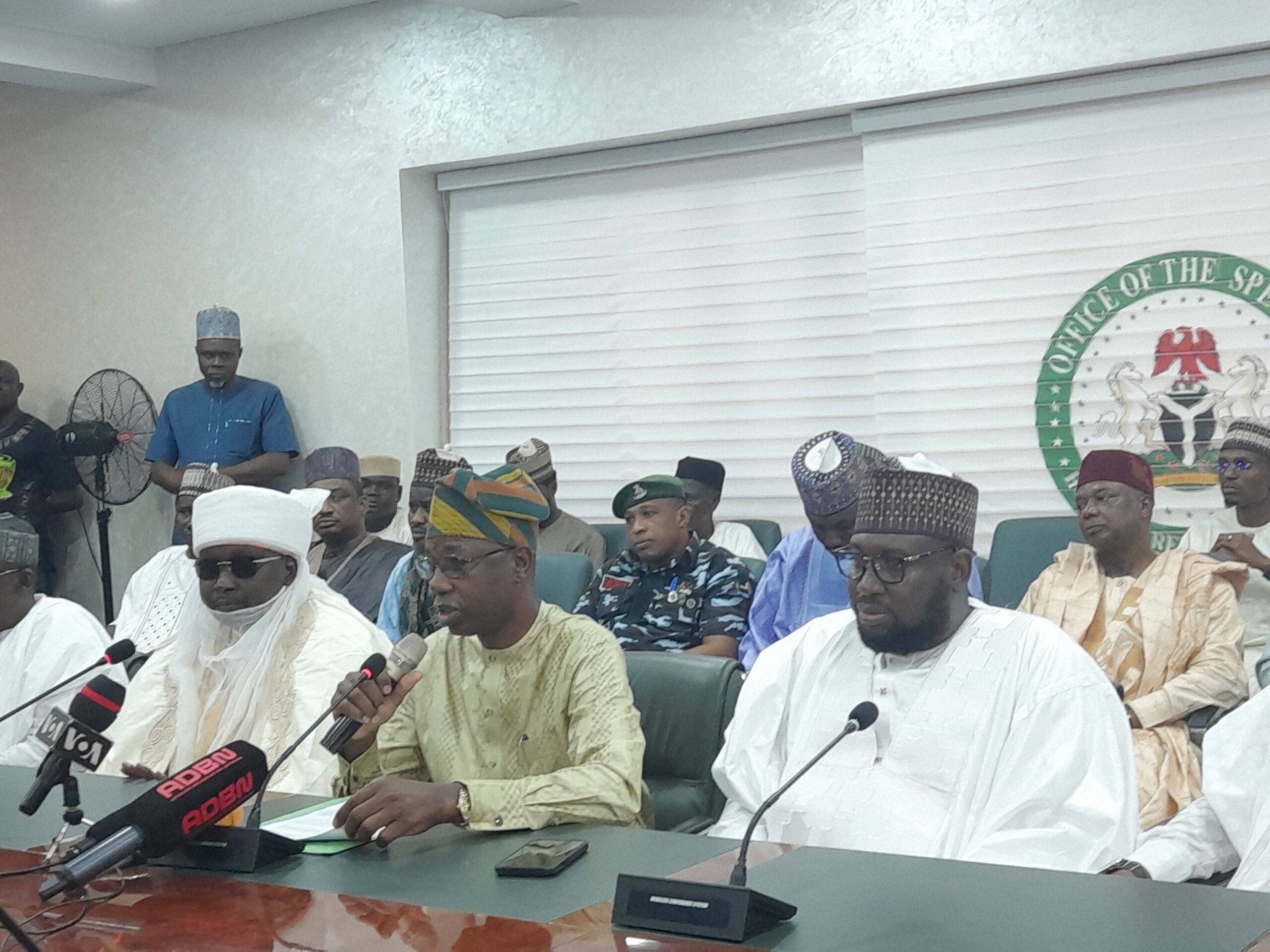News
NHRC express worry over rising human rights violations in Nigeria

By Francesca Hangeior
The National Human Rights Commission (NHRC) has lamented the rising increase in human rights violations in Nigeria.
Senior Adviser to the Executive Secretary of the Commission, Mr Hilary Ogbonna, expressed his worries at the inauguration of the maiden edition of human rights dashboard and observatory.
According to Ogbonna, the observatory is to record the daily human rights complaints by Nigerians across the 36 states and the FCT.
”Nigeria faces multiple challenges in the protection and enjoyment of human rights for its citizens.
”Insecurity expressed in terrorism, banditry, kidnapping, and other activities of non-state actors has posed challenges to the enjoyment of human rights across Nigeria.
”Economic, fiscal, and monetary reforms introduced by the new administration have increased socio-economic inequalities as Nigeria continues to battle with multi-dimensional poverty, impacting the enjoyment of human rights,” he said.
The dashboard, according to Ogbonna, is a monthly analysis and graphical presentation of human rights situation in Nigeria.
He added that the Human Rights Observatory was for monitoring, reporting, and analysis of human rights violations across Nigeria.
He added that it was also for the documentation, analysis, and dissemination of human rights complaints.
Presenting the dashboard, Ogbonna expressed regrets that the North-Central zone topped in rights violations, with Abuja having 382 out of 1147 complaints in January.
He disclosed that the figures represented only a fraction of rights violations in the country, as a large number of other violations went unreported.
In the distribution of complaints in January, domestic violence recorded 528; state actors 84, private sector actors 64; non-state actors 27; and right to life recorded 40.
He added that the North West had the highest number of domestic violence in the country.
Domestic violence, according to him, included wife battery, rape, child abandonment, and assault.
According to Ogbonna, the dashboard is the general human rights violations not reported but captured and analysed.
He added that the increase in kidnappings of children and young people was a soft target.
Ogbonna lamented that the situation on the plateau and the attack on traditional institutions like what happened in Ekiti State were of concern to the commission.
“Based on our analysis, 150 kidnapping cases were recorded in January, including 55 killings, 15 hate speeches, and the killing of seven law enforcement agents,” NHRC said.
He added that 10 children were victims of torture.
He pointed out that the NHRC had the mandate to investigate human rights violations in the country.
News
Finally, IGP approves hunger protests across Nigeria

The Nigerian police has finally approved the planned nationwide protests and outlined conditions for participants.
The Inspector General of Police, Kayode Egbetokun, revealed this on Friday while addressing journalists in Abuja.
He urged all groups planning to participate in the proposed nationwide protest to submit their details to the Commissioners of Police in their respective states.
The police boss said this was to ensure the protest was peaceful.
Egbetokun said, “We acknowledge the constitutional right of Nigerian citizens to peaceful assembly and protest.
“However, in the interest of public safety and order, we urge all groups planning to protest to provide necessary details to the Commissioner of Police in the state where the protest is intended to take place.
“To facilitate a successful and incident-free protest, they should please provide the following information: state the proposed protest routes and assembly points; expected duration of the protest; and names and contact details of protest leaders and organisers.”
The police boss said the information expected from the organisers also include measures to prevent hijacking by criminal elements, as well as key identifiers for possible isolation of potential troublemakers.
By providing the information, he said, the police will be able to deploy adequate personnel and resources to ensure public safety.
He said the police needed to know the specific routes and areas for the protest to avoid conflicts with other events or activities.
Mr Egbetokun said the police will “establish clear communication channels with protest leaders to address any concerns or issues that may arise; minimise the risk of violence, property damage, or other criminal activity.
“We encourage all protesters to cooperate with the police, obey the law, and adhere to global best practices for peaceful assembly to guarantee a safe and successful exercise of their rights.
News
Reps North-West Caucus Beg Youths, Citizens In The Region Not To Join Planned Protest

News
Reps Applaud FCT Minister, Wike On AICL Improved Revenue, Infrastructure

-

 News23 hours ago
News23 hours agoIwuanyanwu was a Heavyweight in all ramifications-Abaribe
-

 News22 hours ago
News22 hours agoTinubu, Southern Govs Mourn Iwuanyanwu
-

 News22 hours ago
News22 hours agoSokoto Governor, Aliyu’s Wife Holds Lavish Birthday As Guests Spray Dollar Notes On Her Amid Hunger, Hardship
-

 News22 hours ago
News22 hours agoProtest: President Tinubu In Closed-door Meeting With Traditional Rulers (Video)
-

 News23 hours ago
News23 hours agoTinubu’s Presidency Is Failing Nigerians – Afenifere
-

 News18 hours ago
News18 hours agoNationwide protest: ‘Airport Is Filled Up, Govs, Senators, Reps, Ministers Traveling Abroad’ — Fayose
-

 News23 hours ago
News23 hours agoIGP Orders DPOs, Their Men To Storm Vulcanizer Shops Ahead Of Planned Nationwide Protest
-

 News22 hours ago
News22 hours agoCourt fixes date to hear suit challenging Shaibu’s reinstatement







